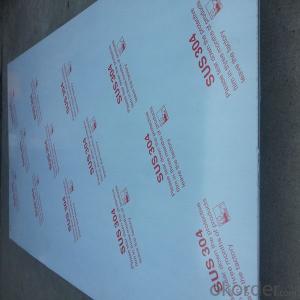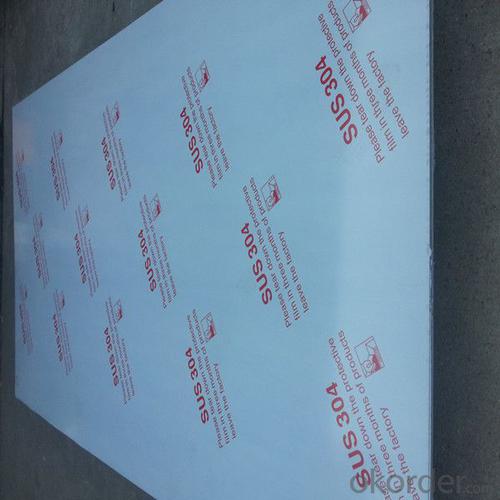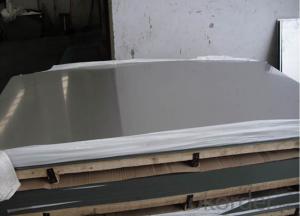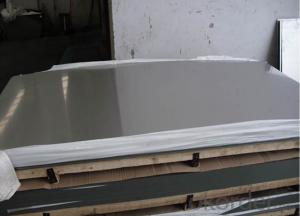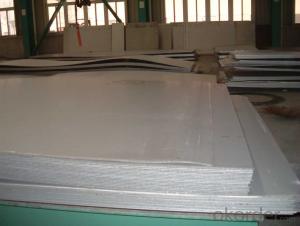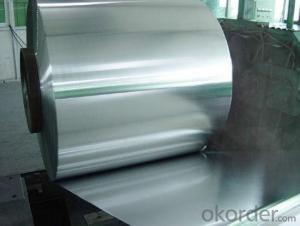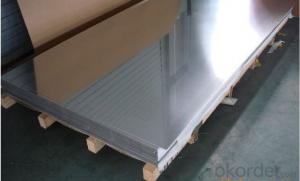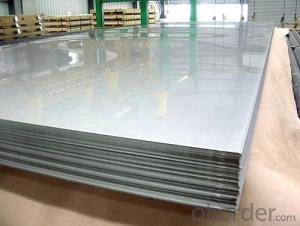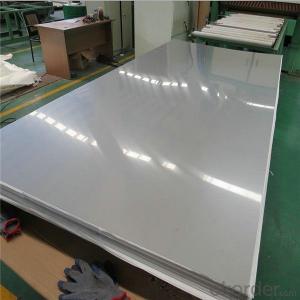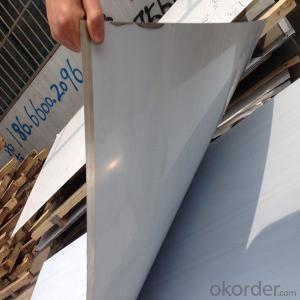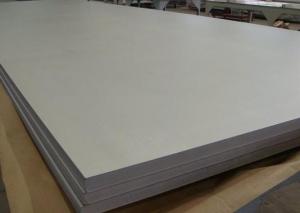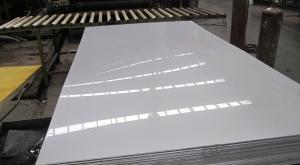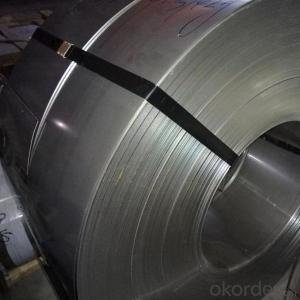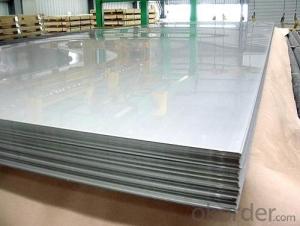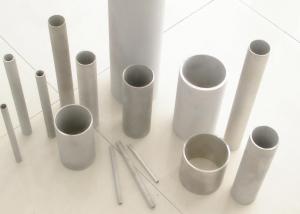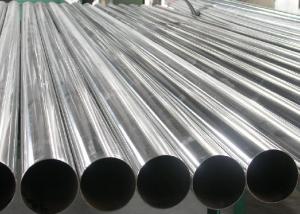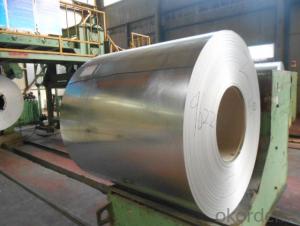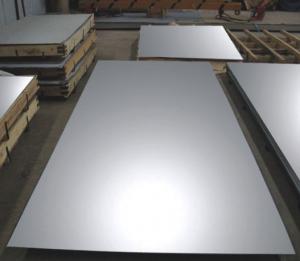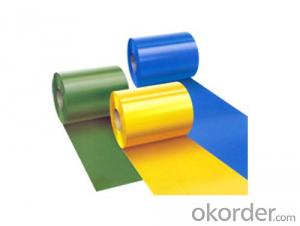Stainless Steel Sheet TP201 2mm Thickness
- Loading Port:
- Shanghai
- Payment Terms:
- TT OR LC
- Min Order Qty:
- 3 m.t.
- Supply Capability:
- 30000 m.t./month
OKorder Service Pledge
OKorder Financial Service
You Might Also Like
Specification
High quality stainless steel sheet tp 201
1.Length:1000-6000mm
2.Width ;600-2500mm
3.Thicknes:0.3mm-150mm
Brand: | ISCO, LISCO, ZPSS, Baoxin |
Certification: | ISO DNV etc |
Surface: | No.1 No.4 BA 2B HL 8K or as requested |
Manufacture: | Hot rolled/cold rolled |
Standard: | JIS, AISI, ASTM, GB, DIN, etc. |
Delivery time: | Within 7-10 working days since get the deposit |
Quality: | Prime quality |
Package: | Standard sea-worthy packaging(cover with PVC and wooden case), or as buyers' requirement |
Weight of coil | 5~6 tons |
Payment terms | 30% as deposit by T/T , and the balance should be paid by T/T against copy of B/L or L/C. |
Productive: | 5000 tons per week |
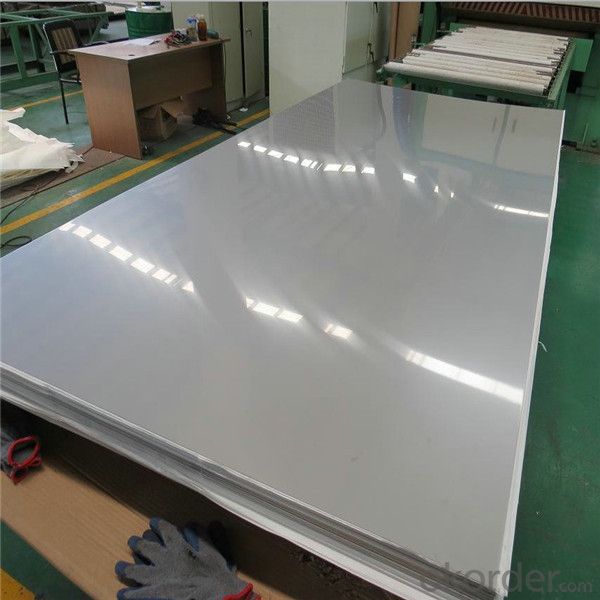
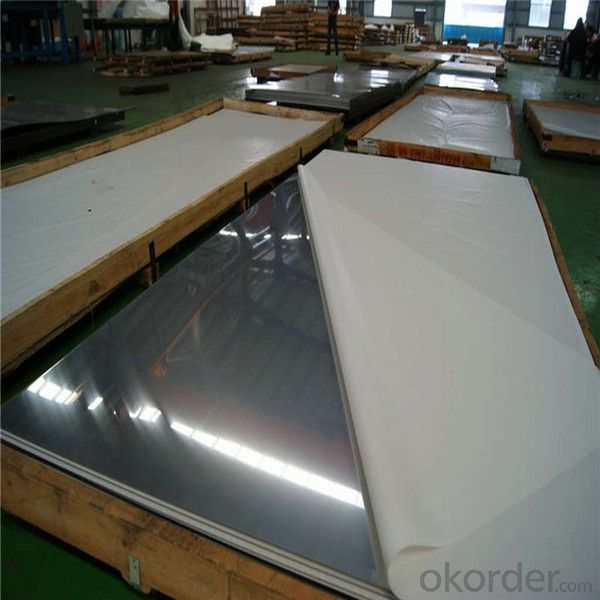
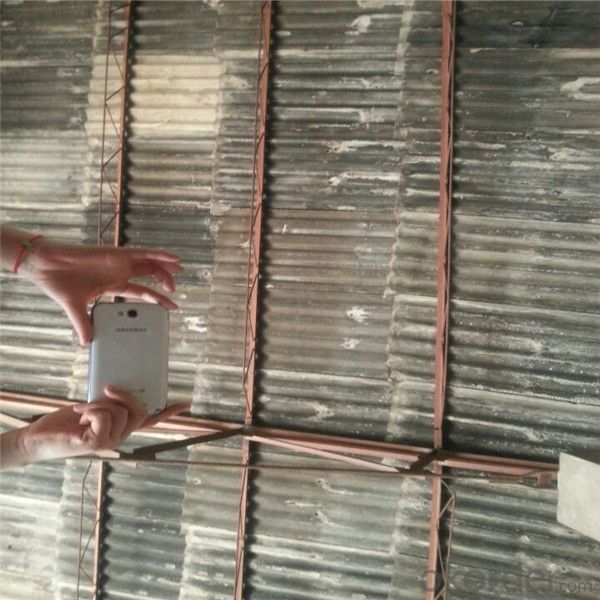
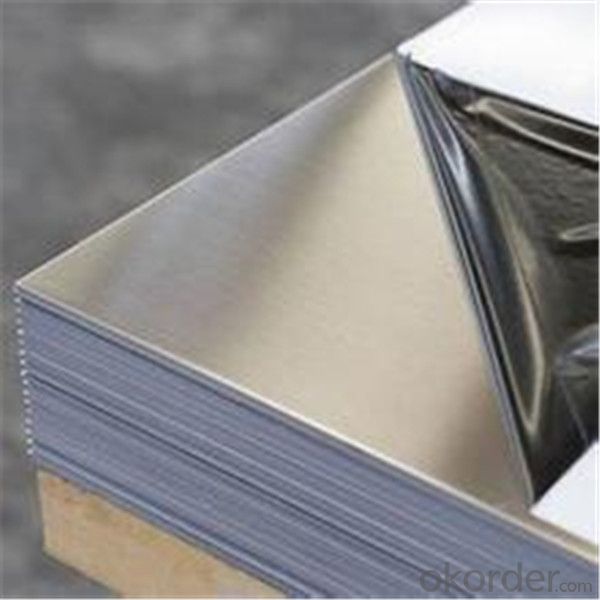
- Q: Can stainless steel sheets be used for fermentation tanks?
- Yes, stainless steel sheets can be used for fermentation tanks. Stainless steel is a popular choice for fermentation tanks due to its resistance to corrosion, durability, and ease of cleaning. It provides a hygienic environment for fermentation processes and helps maintain the desired temperature and conditions for fermentation.
- Q: Are stainless steel sheets suitable for pharmaceutical cleanrooms?
- Yes, stainless steel sheets are highly suitable for pharmaceutical cleanrooms. Stainless steel is widely used in the pharmaceutical industry due to its excellent resistance to corrosion, durability, and ease of cleaning. It is a non-porous material that does not harbor bacteria or contaminants, making it ideal for cleanroom environments where maintaining a sterile and hygienic environment is crucial. Stainless steel sheets are also easy to sanitize and withstand harsh cleaning agents without deteriorating or releasing particles that could contaminate the pharmaceutical products being manufactured. Additionally, stainless steel has a smooth and non-shedding surface, which prevents the accumulation of particles and facilitates cleanroom maintenance. Overall, stainless steel sheets are an excellent choice for pharmaceutical cleanrooms to ensure compliance with strict cleanliness and sterility requirements.
- Q: Can stainless steel sheets be painted or coated?
- Yes, stainless steel sheets can be painted or coated. However, it is important to properly prepare the surface by cleaning and applying a suitable primer before painting or coating to ensure adhesion and durability of the finish.
- Q: What are the fire resistance properties of stainless steel sheets?
- Stainless steel sheets have excellent fire resistance properties due to their unique composition and structure. Unlike other materials, stainless steel does not readily burn or ignite when exposed to high temperatures. This is primarily because stainless steel contains a high percentage of chromium, which forms a thin, protective oxide layer on the surface of the material when exposed to air. This oxide layer acts as a barrier, preventing the underlying steel from reacting with oxygen and further resisting fire. Furthermore, stainless steel has a high melting point, typically around 1400-1450°C (2552-2642°F), which is significantly higher than most common building materials. This means that stainless steel sheets can withstand extreme heat without deforming or losing their structural integrity, providing additional fire protection. Additionally, stainless steel is non-combustible, meaning it does not contribute to the fuel load of a fire. This characteristic is particularly important in construction and industrial applications, where fire safety is a top priority. Overall, the fire resistance properties of stainless steel sheets make them an ideal choice for various applications, including building construction, transportation, and industrial settings, where fire protection is necessary.
- Q: Can stainless steel sheets be used for countertops?
- Certainly! Countertops can indeed be made using stainless steel sheets. Stainless steel is a material known for its durability and versatility, as it possesses resistance against stains, heat, and bacteria. Consequently, it proves to be an exceptional option for kitchen countertops. Moreover, stainless steel countertops are effortless to clean and maintain, all while presenting a sleek and contemporary look. While commonly found in commercial kitchens, these countertops are steadily gaining popularity in residential settings, owing to their durable nature and hygienic qualities.
- Q: Are stainless steel sheets suitable for architectural wire mesh?
- Yes, stainless steel sheets are suitable for architectural wire mesh. Stainless steel is a durable and corrosion-resistant material, making it ideal for outdoor applications. It provides strength and stability to the wire mesh, ensuring longevity and aesthetic appeal in architectural designs.
- Q: How can I classify stainless steel plates?
- The stainless steel plate is classified according to the mode of production: it can be divided into hot rolled steel plate (steel plate heated by reheating furnace) and cold-rolled steel plate (steel plate produced by cold rolling process).
- Q: What's the difference between cold rolling and hot rolling of stainless steel plate?
- Hot rolling is relative to cold rolling, cold rolling is performed under recrystallization temperature, while hot rolling is rolling above recrystallization temperature.
- Q: Are stainless steel sheets suitable for hygienic applications?
- Stainless steel sheets prove to be highly suitable for applications requiring strict cleanliness and hygiene standards. Their exceptional corrosion resistance renders them ideal for environments with such requirements. The material's non-porous nature ensures it neither absorbs liquids nor harbors bacteria, thus simplifying cleaning and maintenance. Moreover, the smooth and polished surface of stainless steel discourages the accumulation of dirt, grime, and bacteria. Thanks to its durability and strength, stainless steel sheets resist scratches and dents, ensuring a long-lasting and hygienic surface. Because of these hygienic properties, stainless steel sheets find common use in the food and beverage industry, pharmaceutical industry, healthcare facilities, and laboratories.
- Q: What is the maximum thickness of stainless steel sheets for bending?
- Factors such as the type of stainless steel, the bending method, and available equipment determine the maximum thickness for bending stainless steel sheets. Typically, sheets up to 3/16 inch (4.76mm) thick can be easily bent using common techniques and equipment. Nevertheless, thicker sheets may necessitate specialized machinery or processes like hydraulic or press braking to achieve the desired bend. To determine the maximum thickness that can be effectively bent for a specific application, it is crucial to consult with a metal fabrication expert or refer to specific bending guidelines provided by the stainless steel manufacturer.
Send your message to us
Stainless Steel Sheet TP201 2mm Thickness
- Loading Port:
- Shanghai
- Payment Terms:
- TT OR LC
- Min Order Qty:
- 3 m.t.
- Supply Capability:
- 30000 m.t./month
OKorder Service Pledge
OKorder Financial Service
Similar products
Hot products
Hot Searches
Related keywords
